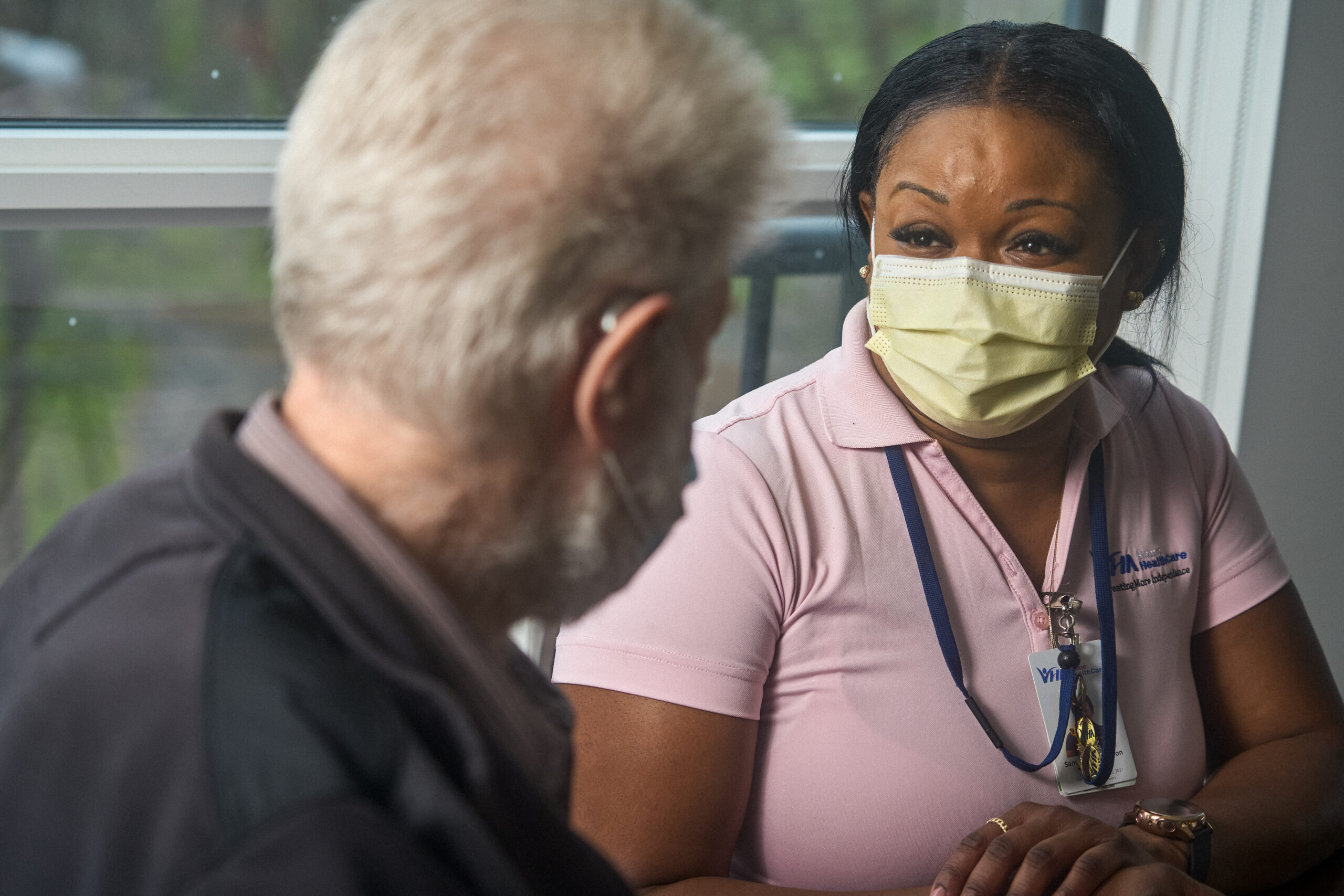Understanding Home Care Services in Ontario

Many people experiencing age-related difficulties, recovering from a surgery, illness or injury, or living with complex health needs or a chronic health condition want to receive the care they need in the comfort of their own home. Research shows home care is not only generally preferred but is also the most cost-effective option when compared to other care settings.
There are a wide range of services available, including support for families and caregivers, but the Ontario home care system can be confusing and difficult to navigate. This can be especially challenging if care needs or circumstances change quickly. If you or a loved one want to continue to live independently and safe at home, here’s a brief summary to help you better understand the system and get the support you need.
What type of support is available?
In-home care providers can assess your needs, provide direct care or offer strategies to help you better care for yourself or a loved one. Examples of home care services and common tasks include:
- Nursing: Wound care, foot care, medication, pain and symptom management
- Personal care: Activities of daily living (grooming, dressing, bathing), companionship, meal preparation and light household duties
- Occupational therapy: Strategies to manage daily tasks and improve home safety
- Physiotherapy: Pain relief and management, injury prevention and assistive device assessments
- Speech therapy: Treatment of language and speech difficulties and swallowing and feeding problems
- Social work: Management of conflict, stress and other difficult issues, referrals to government and community supports
- Dietetics: Assessment of nutritional needs, chronic disease management and strategies for swallowing difficulties
How do you access care and is it government funded?
There are a wide range of home care services that are covered through the Ontario Health Insurance Plan (OHIP). Ontario Health atHome – formerly Home and Community Care Support Services (HCCSS) or Local Health Integration Network (LHINs)—determine who receives care, what services and how often.
All Ontario residents are eligible for an assessment by an Ontario Health atHome care coordinator or case manager and do not require a referral from a family physician or another health care provider. You can contact your local Ontario Health atHome branch or call 310-2222 to determine your eligibility for government-funded personal support, occupational therapy, nursing, physiotherapy, speech-language pathology, dietetics or social work services.
If you do qualify, your case manager will refer you a home care organization like VHA Home HealthCare, that is under contract with your local Ontario Health atHome branch. From there the home care organization, also known as a service provider organization or SPO, will contact you directly to arrange your care moving forward. Your care coordinator can also connect you with other community services including meal services, friendly visiting and day programs.
What if you don’t qualify for funding?
Although home care services in Ontario are publicly funded, not everyone qualifies for this support. Even for families who are eligible, the amount or type of care provided may not meet your needs. Fortunately, many home care organizations provide private paid care or the option to purchase additional top-up hours.
While these services are an out-pocket-expense, there may be other funding options including private insurance, employee benefit plans, government grants or tax credits available. Examples of benefits for individuals or their caregivers include the Canadian Caregiver Credit, Disability Tax Credit, Medical Expense Tax Credit, Ontario Seniors Care at Home Credit or Veterans Emergency Fund.
How do I access purchased services through VHA Home HealthCare?
Whether you need extra support to add to your existing care plan or around-the-clock-care, VHA Home HealthCare (VHA)’s Enterprise Health Solutions team provides a range of support at home. Services for purchase include: foot care, nursing and rehabilitation services, palliative care, personal care, meal preparation, light housekeeping, grocery shopping, companionship and escorting to appointments. VHA’s purchased services are also available during a hospital stay or in a long-term care facility.
As a charitable organization, VHA’s services are competitively priced and all rates are listed by service type here. At VHA, every dollar made goes back to fund community health care initiatives.
To purchase services or find out more, contact (416) 489-2500 ext. 4649 or by email at ehs@vha.ca.
